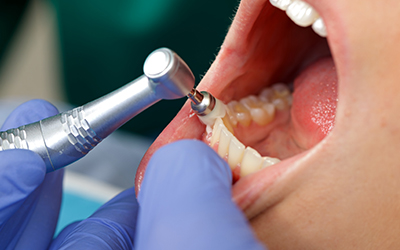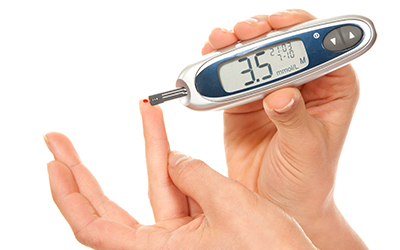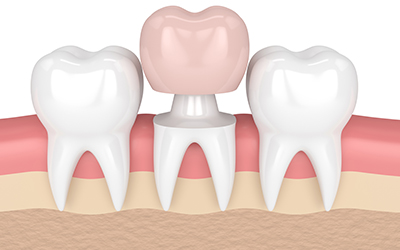EXPECT DISCOMFORT: This is normal and should be expected, particularly when chewing on or touching the tooth. Different teeth and patients respond differently, however, discomfort typically lasts for less than a week. It can last longer in some instances. Typically, the more pain experienced prior to the treatment, the more discomfort can be expected following the procedure. Take medications as directed and contact the office if you have any concerns.
BE CAREFUL: Avoid chewing with the treated tooth until the final restoration is completed by your Restorative Dentist. The tooth is vulnerable to fracture if a crown is not already present or if there are existing cracks. A fracture could make the tooth unrestorable and require extraction.
HAVE THE TOOTH RESTORED: After the root canal treatment has been completed, you will be scheduled for an appointment for the final restoration. The final restoration is ideally placed once the post-operative discomfort has resolved unless otherwise advised. 1-3 weeks is the typical timeframe for restoration after the root canal treatment is complete. Restoration of the tooth is essential for the success of the root canal and survival of the tooth.
FOR PAIN: Please take the following if instructed for pain
Ibuprofen (Advil / Motrin): 200-600 mg every 4-6 hours if needed for pain. Over-the-counter Ibuprofen pills are 200 mg each. Do not exceed 3200 mg in a 24-hour period.
You may alternatively take Aleve (1 tablet / 220 mg) every 4-6 hours. Do not exceed 1375 mg in a 24-hour period.
Acetaminophen (Tylenol): 325-650 mg every 4-6 hours if needed for pain. (Regular strength over-the-counter Acetaminophen pills are 325 mg each. “Extra strength” pills are 500 mg each). Do not exceed 3000 mg in a 24-hour period (including cold medications).
Narcotic analgesic (Ex: Norco, Tylenol #3): Use as directed on prescription (a prescription is needed for a narcotic). Use caution, as narcotic medication can impair your ability to drive, operate machinery, etc. Also, be aware that the narcotic likely also contains acetaminophen, and therefore supplementary Tylenol should be reduced/adjusted accordingly.
FOR INFECTION: If antibiotics have been prescribed, it is very important that they are taken as directed until they are all gone - even if the symptoms have fully subsided. Please note that it often takes 48-72 hours before the antibiotics can begin to control the infection. During this time, it is not uncommon for infection, pain, or swelling to actually increase.
Articles
OUR Blog
Allow our family dentistry clinic to care for your oral healthcare needs with our comprehensive list of services, including dental crowns, dental restorations, teeth extractions, teeth cleaning & examination, teeth whitening, etc. In addition, we also offer essential dental care services such as dentures, partial dentures, veneers, and dental implants. Learn more about these dental services and trending oral healthcare topics in our monthly blog.










